Sept. 11 Happened to Us All
Tensions are high in Tennessee, as they have been all over our nation, in anticipation of the ninth anniversary of the Sept 11 attacks Controversies abound Mosque-building, book burning and threats of violence are making it increasingly difficult to separate what pastor/author Rick Warren is calling “church and hate” Tensions are high in Tennessee, as they have been all over our nation, in anticipation of the ninth anniversary of the Sept .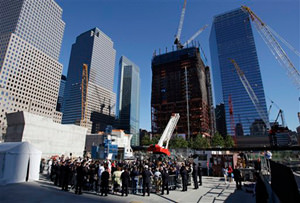
FRANKLIN, Tenn. — Tensions are high in Tennessee, as they have been all over our nation, in anticipation of the ninth anniversary of the Sept. 11 attacks. Controversies abound. Mosque-building, book burning and threats of violence are making it increasingly difficult to separate what pastor/author Rick Warren is calling “church and hate.”
The list of those opposing Quran-burning is growing—Barack Obama, John McCain, Sarah Palin, Glenn Beck, Hillary Clinton, Robert Gates and David Petraeus, among many others. Despite the outcry that has seemingly thwarted Florida pastor Terry Jones’ plan to burn all the Qurans he can get his hands on this Saturday, the Rev. Bob Old of Springfield, Tenn., is as determined as ever to set fire to a Quran at his home this Saturday and then post a video of his action online. Perhaps Old wants people to be able to replay this image, just as the initial 9/11 images were played repeatedly. According to The Tennessean, Old’s self-proclaimed act of protest is his way of expressing his longing for a nation without Muslims. “If they want to have their religion, they can have it somewhere else,” the minister was quoted as saying.
Unfortunately, Old is not the only one who is expressing these longings. When Laurie Cardoza-Moore, the head of a group that promotes Christian-Jewish relations, was interviewed recently by CNN’s Anderson Cooper, she said she opposes the construction of an Islamic center in Murfreesboro, Tenn., because an online posting by one of the center’s board members suggested radicalism and raised suspicions about the judgment and the ties of the center’s leadership. Things became even more tense after a construction tractor on the Islamic center site was set aflame recently. I heard an indication of that tension from an acquaintance I ran into at a Franklin, Tenn., coffee shop earlier this week: She told me that “they” are here to get us and that “they” should just go “somewhere else.”
Here are the questions with which I responded: Who are “they”? And where is “somewhere else”?
For many, “they” are Arab-American men with beards and Arab-American women dressed in burqas, something straight out of “Sex and the City 2.” But according to the Pew Center, that image is not accurate. “A 56% majority of native-born Muslims are black, 31% are white, 10% are Hispanic, 11% identify as Other/Mixed Race, and 2% are Asian.” Recent CAIR and My Faith-My Voice public service announcements make this diversity visible. The fact is, no one ethnic/racial group makes up a majority among Muslim Americans. It seems that beneath much of this religious fervor against Muslims lies the more familiar story of ethnic profiling.
The “somewhere else” issue seems closely tied to our nation’s anxieties about immigration and changing demographics. In the wake of Arizona’s SB 1070 and projections of a white minority by the year 2050, the word Muslim is associated with the word foreign. This is an inaccurate perception. The Pew Center reports that “roughly two-thirds of foreign born Muslims now account for roughly 0.6% of the U.S. adult population.” So, it seems that most Muslims actually are practicing their religion somewhere other than the United States.
For those who choose to practice Islam “here” in Tennessee, there is hope. Amir Arain, spokesperson for the Islamic Center of Nashville, told The Tennessean’s Steven Hudak this week that “we will pray that God gives [the Rev. Old] wisdom.” Arain worries about America’s image in the world’s eyes, yet believes that local Muslims will not be moved away by those who do not know or understand them. “The Quran is not going to be banished by being burned. Millions of Muslims have memorized the Quran in their heart.” And, this turmoil has not stopped interfaith and intercultural dialogue. On Sept. 7, Muslims and non-Muslims joined in Nashville to break bread, communicate and promote cultural harmony. This is exactly the kind of space President Obama has urged us to create for what he called “mature” exchanges about “the divides that still exist.”
What came out of the dialogue is that Sept. 11 means a lot of things to a lot of people. It was an unforgettable day. A life-changing day. A day that left a gaping hole nine years have been unable to fill. We do that day a disservice with knee-jerk responses, unfounded accusations and intolerance. We can pay respect to the day, and those we lost, by searching out accurate information and examining ourselves. In light of this we have a choice in how we can commemorate Sept. 11 this year. We can choose to prolong the trauma we all have suffered and find the next convenient scapegoat. Or we can honor our nation and world with honest communication and an attempt at healing. We can remember that Sept. 11 happened to us all.
Your support matters…Independent journalism is under threat and overshadowed by heavily funded mainstream media.
You can help level the playing field. Become a member.
Your tax-deductible contribution keeps us digging beneath the headlines to give you thought-provoking, investigative reporting and analysis that unearths what's really happening- without compromise.
Give today to support our courageous, independent journalists.


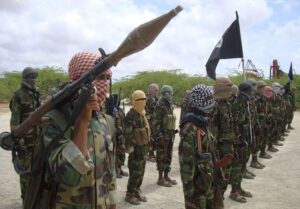
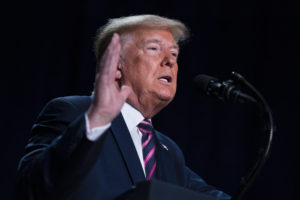
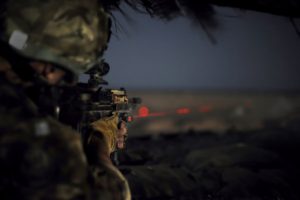
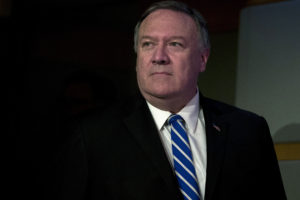
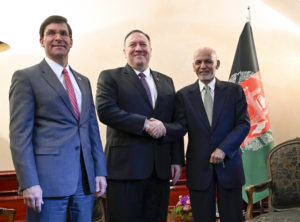


You need to be a supporter to comment.
There are currently no responses to this article.
Be the first to respond.